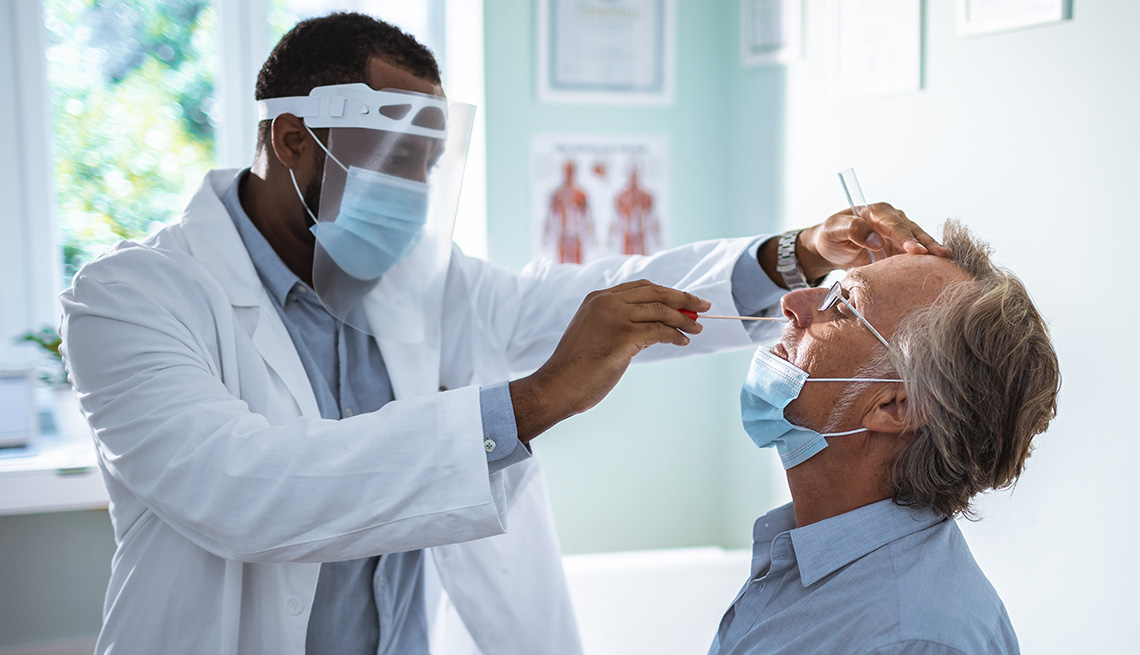
Negative coronavirus test results may still mean risk
- Select a language for the TTS:
- UK English Female
- UK English Male
- US English Female
- US English Male
- Australian Female
- Australian Male
- Language selected: (auto detect) - EN
Play all audios:

The advice isn't much different if you test positive for the coronavirus. Scott Weisenberg, M.D., medical director for travel medicine and an infectious disease specialist at NYU
Langone Health in New York City, says patients who test positive for COVID-19 should check with their physician and local health department to find out how long to self-isolate. The CDC also
has guidelines that suggest a self-isolation period of at least 10 days since symptom onset. Keep track of any symptoms you develop, and be on the lookout for emergency warning signs.
Trouble breathing, persistent pain or pressure in the chest, new confusion, inability to stay awake and blueish lips or face warrant immediate medical attention. DELAY IN ACCURATE RESULTS
ELEVATES NEED FOR FREQUENT TESTING Many public health experts warn that testing people several days after they are infected with the virus, even if that is when results are most accurate,
does not help efforts to contain the spread of the virus. "Because we don't do enough frequent testing, we're missing people at peak,” Michael Mina, M.D., assistant professor
of epidemiology at Harvard T.H. Chan School of Public Health, told reporters on a recent media call. By the time most people get tested, they've likely already transmitted the virus to
others, meaning “we caught them too late,” adds Mina, who has long called for rapid, over-the-counter home coronavirus tests, similar to a pregnancy test. Rapid tests (also called antigen
tests) have a higher likelihood of false-negative results. However, if they are easily accessible and inexpensive, individuals could test themselves frequently and self-isolate more quickly
if an infection is identified. Until new testing strategies and technologies are widely available to the public, the Johns Hopkins researchers caution that “care must be taken in
interpreting RT-PCR tests” for a coronavirus infection, and that “if clinical suspicion is high, infection should not be ruled out” on the basis of test results alone. "As we develop
strategies to reopen services, businesses and other venues that rely on testing and contact tracing, it is important to understand the limitations of these tests,” Kucirka said.
